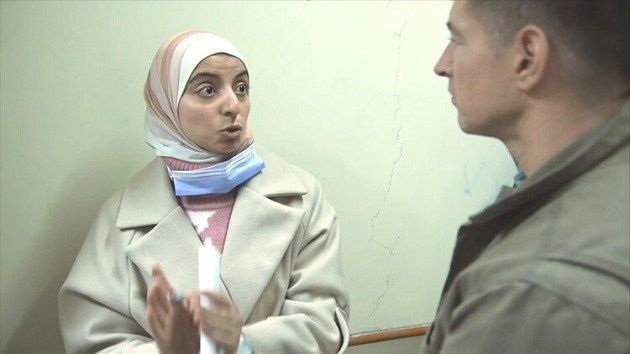
(DAMASCUS, Syria) — Family members and friends of thousands of missing Syrians are continuing their search for those disappeared by former President Bashar Assad’s regime across 14 years of civil war, as victorious rebel forces begin building a transitional government.
Crowds gathered outside a hospital in the capital of Damascus to pore over images of mutilated bodies recovered from the infamous Saydnaya prison — once described by Amnesty International as a “human slaughterhouse.”
Among them was Abdullah, who was told that his brother was arrested in 2013 and died in 2016. Abdullah told ABC News he had been given no other information then or since and that he came to the hospital in the hope of identifying his brother among the dead.
Abdullah did not find his brother’s body. He told ABC News he would continue his search at another hospital where released prisoners were being treated.
In a morgue inside the hospital, one man found his son among the bodies. Mohammad, 20, was a political prisoner taken into custody in October, his father said. Security Forces also took the father into custody and held him for 60 days, before releasing him.
Mohammad was killed just two months before the spectacular collapse of Assad’s regime, the man said. Holding his 15-year-old younger son close, the bereaved father told ABC News he feels there are brighter days ahead despite his loss.
Some 157,000 people disappeared into regime prisons and other facilities between 2011 and 2024, per an estimate by the Syrian Network for Human Rights.
A forensics doctor in the hospital morgue told ABC News he identified the bodies of about 37 people, most of whom were being held in the Saydnaya prison.
Many of the bodies had signs of torture and many of them suffered malnutrition; some of the bodies have almost no muscle tissue between the ribs due to extreme malnutrition, Dr. Sarah Melhem, a forensics doctor at the hospital, told ABC News. Many have signs of being shot, including entry and exit wounds, while others have signs of torture, including bruises, wounds and scars.
Some of the recovered bodies have expressions of fear on the faces while others are decomposed, Melhem said.
“These are political prisoners, so these prisoners have maybe spent a long time in the prisons so the torture signs [have] dissolved,” Melhem said.
Many of the bodies showed signs of being shot, bearing entry and exit wounds. Others had signs of torture including bruises, wounds and scars. Some of the recovered bodies have expressions of fear frozen on their faces, while others are decomposed, Melhem said.
“I have a cousin who was a political prisoner, but we don’t know anything about him,” Melhem said. “We don’t see him. He was arrested from about 2013 and we don’t know anything about him,” Melhem said.
Under Assad, people were taken into custody for things as simple as a Facebook post, Melhem said.
“I believe that this is a criminal system and all of the Syrian people refuse the system but nobody [could] talk. We [didn’t] have the right to speak,” Melhem said.
“After this system fell down, all of the Syrian people are speaking a lot about their experience. All of them have an experience of somebody who died, somebody who have a criminal action on them,” Melhem said.
The collapse of Assad’s government last weekend ended 14 years of conflict between Damascus — backed by Russia and Iran — and a patchwork of anti-government forces, some supported by foreign nations including Turkey and the Gulf states.
Who will lead the next government remains unclear. Hayat Tahrir al-Sham — an Islamist group which has its roots in al-Qaeda — led the surprise offensive that eventually toppled Assad.
HTS leader Abu Mohammed al-Jolani, whose real name is Ahmed al-Sharaa, has vowed to punish those accused of involvement in the torture, killings and disappearances that long characterized Assad family rule in Syria.
“We will not hesitate to hold accountable the criminals, murderers, security and army officers involved in torturing the Syrian people,” Jolani said in a statement posted to the rebels’ Military Operations Command Telegram channel.
“We will pursue war criminals and demand them from the countries to which they fled so that they may receive their just punishment,” he added.
Copyright © 2024, ABC Audio. All rights reserved.
